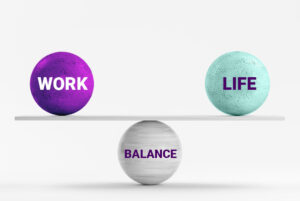It may come as a surprise that the term “soft skills” has its roots in the military—a psychologist named Dr. Paul Whitmore worked closely with the U.S. Army in the 1960s to help distinguish these people-oriented skills from more tactical, hands-on skills, like weapons handling or map reading.
However, there’s a reason the term was coined in the first place: Even in high-stakes and high-pressure environments, the ways people lead, communicate, and work with others can make all the difference.
In accounting, hard skills keep the engine running, but the profession has evolved. Modern firms are harnessing technology to automate routine tasks, freeing up their accountants to focus on what really matters. As practices transform, so do client expectations. Today’s clients aren’t just looking for number-crunchers—they’re seeking strategic advisors and forward-thinking consultants who understand finance and accounting inside and out to help navigate what’s ahead with confidence.
This new demand is where the importance of soft skills in accounting comes in, and this blog will help you identify the key soft skills that your accountants should develop. Our guide also explores how firms can identify talent with a good balance of hard and soft skills, as well as where to find them.
Summary
What are Soft Skills?
Soft skills are personal and interpersonal abilities that shape how accountants lead, communicate, and work with others. Unlike hard skills (e.g., financial reporting or tax preparation in accounting), soft skills are less about technical knowledge and more about how you navigate team dynamics, handle challenging work, and build meaningful relationships in and out of the business.
Why are Soft Skills Important in the Workplace?
Soft skills are important in the workplace because they help accountants manage various workplace challenges with composure, precision, and confidence. As accounting teams often face tight deadlines, demanding clients, and complex records that require intense attention to detail, soft skills help accountants turn time pressure into performance, client requests into accomplished goals, and piles of data into nifty and accurate records.
Consider this common scenario: Month-end close is just days away, but your client has submitted incomplete records. In moments like these, it’s not technical knowledge that gets the job done, but your team’s ability to stay calm, delegate tasks wisely, and leverage the right tools under pressure.
These exact skills are what the accountants of today need to become strategic forward-thinkers of tomorrow—negotiating contracts, closing deals, forging lasting client relationships, and ultimately, driving sustainable growth to your firm.
What Soft Skills Should Accountants Develop?
As we’ve said, hard skills alone won’t keep things running. To build a well-rounded team, focus on these six essential soft skills in accounting: Critical thinking, problem solving, time management, leadership, interpersonal, and communication skills.
Let’s dive into each one.
1. Critical Thinking Skills

Critical thinkers are the backbone of high-performing accounting firms—they dig deeper, they anticipate issues, and they challenge assumptions instead of taking things at face value.
For example, critical-thinking auditors don’t just glance at a revenue spike or an odd expense and move on. Instead, they would ask questions, examine the details, and uncover what’s really going on. In such cases, a good auditor would:
- Check if the invoices, delivery receipts, and customer names match
- Dig into shipping logs, customer communications, and payment histories for any inconsistencies
- Ensure that the revenue increase is aligned with the client’s industry trends or seasonality
- Check whether the products were actually delivered or services were fully rendered
- Identify the correct category that a certain odd expense would ideally fall under
While some cases of misalignments or sudden number spikes may be honest mistakes, others may be intentional. With critical thinkers on your team, you can spot issues like early revenue recognition or misclassified expenses. The first could point to earnings management or even fraud, while the second can throw off depreciation and impact financial accuracy.
So, whether it’s a junior auditor or a CFO, accounting professionals should think critically, looking beyond labels, questioning inconsistencies, and understanding how small details can impact the bigger financial picture.
2. Problem Solving Skills

If accountants can think critically, they should be able to solve problems effectively.
Since accounting is error-prone, accountants need to develop problem solving skills to find fast and accurate solutions for missing data, discrepancies, or client errors. Some problem solving skills include identifying patterns of inefficiency and spotting process-related risks early. In response, your team should recommend improved workflows and take measures to prevent these (potentially costly) mistakes before they occur.
Take, for example, how an AP clerk should handle a duplicate vendor payment: One day, the AP clerk checks and sees two payments for the same invoice—once through a scheduled bank transfer and again via a manual check request submitted by a different department.
Here’s how you build good problem solving skills in an AP clerk:
- Make the AP clerk cross-check the payment logs, verify invoice numbers, and confirm the duplication instead of simply flagging the issue.
- Instruct the AP clerk to promptly contact the vendor to notify them of the overpayment and initiate a reimbursement or credit process without waiting for further confirmation.
- Encourage the AP clerk to recommend a minor process tweak: Implementing an automated invoice-matching system that flags duplicates before payment is approved, preventing similar errors in the future.
With problem solving skills, issues are resolved quickly with minimal disruption, and the clerk proactively improves the workflow to reduce the risk of repeat errors.
3. Time Management Skills

A deadline-driven field requires accountants who thrive under pressure and consistently beat the clock. Your team should go beyond setting timers, watching their lunch breaks, or keeping themselves laser-focused when finishing tasks. They need the foresight to spot time-wasting tasks, the initiative to stay on top of their schedules, and the discipline to stick to them with no excuses.
Let’s take a payroll specialist, for instance. Say, payroll is due every other Friday—rather than scrambling at the last minute, the payroll specialist structures working days precisely and breaks the process into time-blocked phases:
- Monday - for reviewing timesheets and flagging inconsistencies
- Tuesday - for approvals and cross-checking benefits or deductions
- Wednesday - for running preliminary reports and fixing any anomalies
- Thursday morning - for finalizing payroll with a day's worth of leeway for any last-minute adjustments
This time-beating approach isn’t just about leaving buffer time to handle last-minute changes—it’s a holistic transformation of a high-pressure process into a smooth, routine-based workflow. Owning the deadline with structure, foresight, and control ensures that paychecks are always accurate, timely, and drama-free!
4. Leadership Skills

Some think that leaders are born, while others believe that they’re built. The truth? The best leaders leverage their team members’ existing skills while also investing in them, honing both their strengths and their areas for improvement. In other words, they delegate tasks wisely while still holding space for others to rise.
Another trait of a great leader? Making actual, meaningful contributions not only to the team but also to the business at large, like how a senior accountant assists during a firm’s transition to a new cloud-based accounting system—in overseeing the rollout, he reviews the firm’s current workflows, identifies gaps in reporting, and maps out how the new system can improve efficiency.
Be it creating a customized chart of accounts structure tailored to the firm’s reporting needs or working alongside IT to test data migration batches, a true accounting leader executes the set vision skillfully.
Aside from what was mentioned, great leaders also tend to demonstrate traits such as:
- Assigning tasks to the right people and trusting them to carry out the vision
- Sharing deep knowledge while providing hands-on support
- Consistently walking their talk and championing company values in and out of the workplace
- Believing in the team's plans and making sacrifices to carry out the set plans
5. Interpersonal Skills

As the saying goes, “Conversation rules the nation”.
Simply put, having good interpersonal skills means that you handle client relationships with ease, integrate seamlessly with your team, and maintain strong external business relationships. Emotional intelligence is at the heart of soft skills, and it can be measured, but more importantly, strengthened with these competencies that you can use as a benchmark to gauge your team’s people skills.
Constructive and respectful social interactions in the workplace
- Direct, tension-free, and solution-oriented feedback for staff
- No passive-aggressive remarks, indirect criticism, or personal digs towards coworkers
- No repeated instances of blame-shifting towards juniors or leaders
- Rare cases of emotional outbursts in the workplace
Strong and recurring client relationships
- Prompt and effective responses to client inquiries
- Multi-platform communication channels for clients
- Anticipation of clients' future needs
- Rewarding clients' loyalty
Solid external business relationships
- Visible M&A announcements
- High credibility/reliability ratings in surveys and top company lists
- Recipient of various business awards
If you find yourself (or other team members) needing improvement in some areas, then you can always boost your skills through self-studying, coaching, or mentorship. There are even training companies dedicated to developing soft skills in corporate, like TrainSMART or The Soft Skills Group.
6. Communication Skills

In business, communication is more like a roundtable exchange, where you may hold your tongue while waiting for others’ turns to speak, or repeat yourself because someone didn’t catch what you said the first time.
Enhancing communication in the workplace doesn’t only mean speaking and listening—it also means strengthening team collaboration. So, to communicate effectively, you need active listening skills, as well as your intuition. A good example of this is taking notes on the points you want to make when it’s your turn to speak or creating an FAQ list for everyone’s reference to avoid repeating yourself.
Accountants also need to learn how to explain complex terms clearly, since not all firm owners are familiar with accounting jargon. One way for accountants to develop soft skills in communication is through studying their clients’ history. Say you’re a tax preparer: You’d ideally take the time to break down complex deductions in the past and explain recent tax law changes in simple terms, making your client understand terms and concepts that would’ve otherwise been foreign to them.
The Skill Divide in Accounting: Why Both Hard and Soft Skills Matter
In a competitive industry, it’s easy to frame hard and soft skills as opposites—but in reality, accountants can’t work in silos forever, nor beat deadlines with technical skills alone. They need coordination, communication, and the ability to stay composed under pressure. Hard and soft skills go hand in hand, enabling teams to solve problems and keep clients happy. When firms invest in both, they don’t just build stronger accountants, but also build stronger businesses.
Offshoring: More Than Just Hard Skills
Offshore talent offers more than just technical expertise.
TOA Global combines world-class accounting talent armed with skillsets that your firm needs to thrive. Join the many forward-thinking CEOs around the world who are building smarter, stronger teams with offshoring. Talk to us today.























